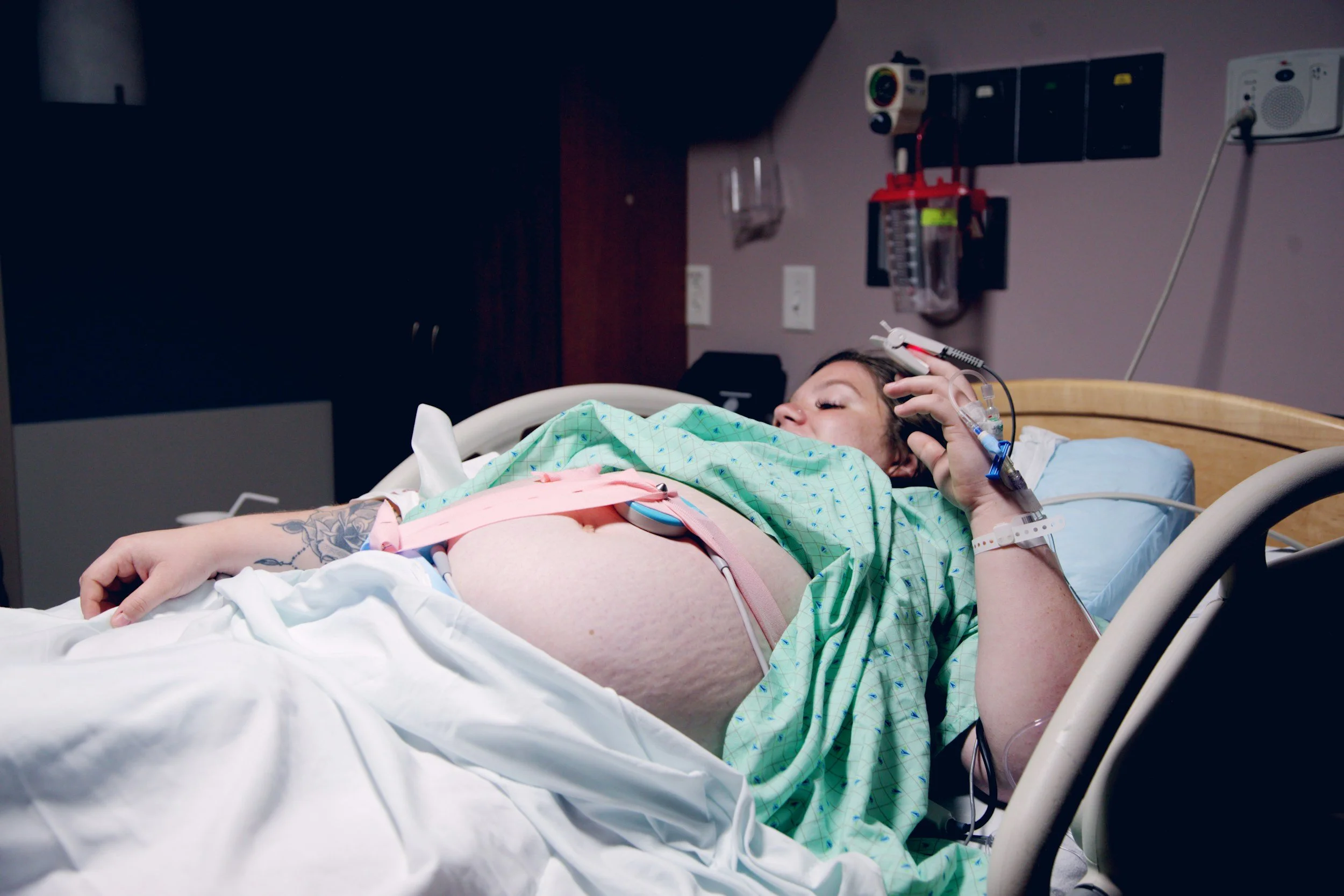What If We Just… Stopped the Drip?
Let’s talk about something I wish more people were talking about: oxytocin during labor. Not the kind your body makes when you hug someone you love. I’m talking about synthetic oxytocin. The stuff used in hospitals to speed up labor.
You’ve probably heard of it by its brand name: Pitocin. It’s a common medication used in labor. It’s also one of the most misunderstood. And as someone who walks with women through birth, I want you to know what recent research is saying, especially if you’re planning an induction or already know you’ll be getting Pitocin during labor.
Because sometimes, less is more.
A New Approach: Hit Pause on the Pit
A recent meta-analysis (that means a big study that looks at lots of other studies) found something interesting: when Pitocin was stopped during the active phase of labor (that’s when your body is really in the zone, working hard, usually around 6cm and beyond), the chance of needing a cesarean went down by 20%.
Read that again: 20% lower risk of C-section.
Stopping the medication — not adding anything fancy, not intervening more — just pausing what was already running.And the benefits didn’t stop there. Uterine tachysystole (that’s when contractions are coming too fast and not giving the baby time to recover) also dropped. So did the rate of those scary, non-reassuring heart rate patterns we all want to avoid.
Yes, labor was about 30 minutes longer on average. But when we’re talking about trading half an hour for a better shot at a vaginal birth with fewer interventions? That’s a swap many people would gladly make.
Why This Matters If You’re Planning a Supported Birth
If you’re my client, you already know this: we don’t do routine for routine’s sake.
Every step we take in your care should be thoughtful, evidence-informed, and based on what actually protects your long-term well-being and not just what moves things along for the hospital.
We also believe in giving your body space to work. We support your decisions with data, calm, and with a plan that reflects your life.
So yes we’ll talk about this research. And we’ll bring it into the room with us, if and when Pitocin is part of your birth plan.
The Bottom Line
You have options.
You can ask to pause the Pitocin once labor is active.
You can say, “Let’s revisit whether we need to keep this going,” and have that conversation with your provider and ideally with your doula or support person present and informed.
And if you’re working with me, you’ll never have to remember all of this alone. We’ll go over it together, in language that makes sense, in a space that puts your peace first.
Birth is powerful. But it’s even more powerful when you know what’s going on and when you have someone next to you who does too. Let’s build your birth plan with that in mind.


